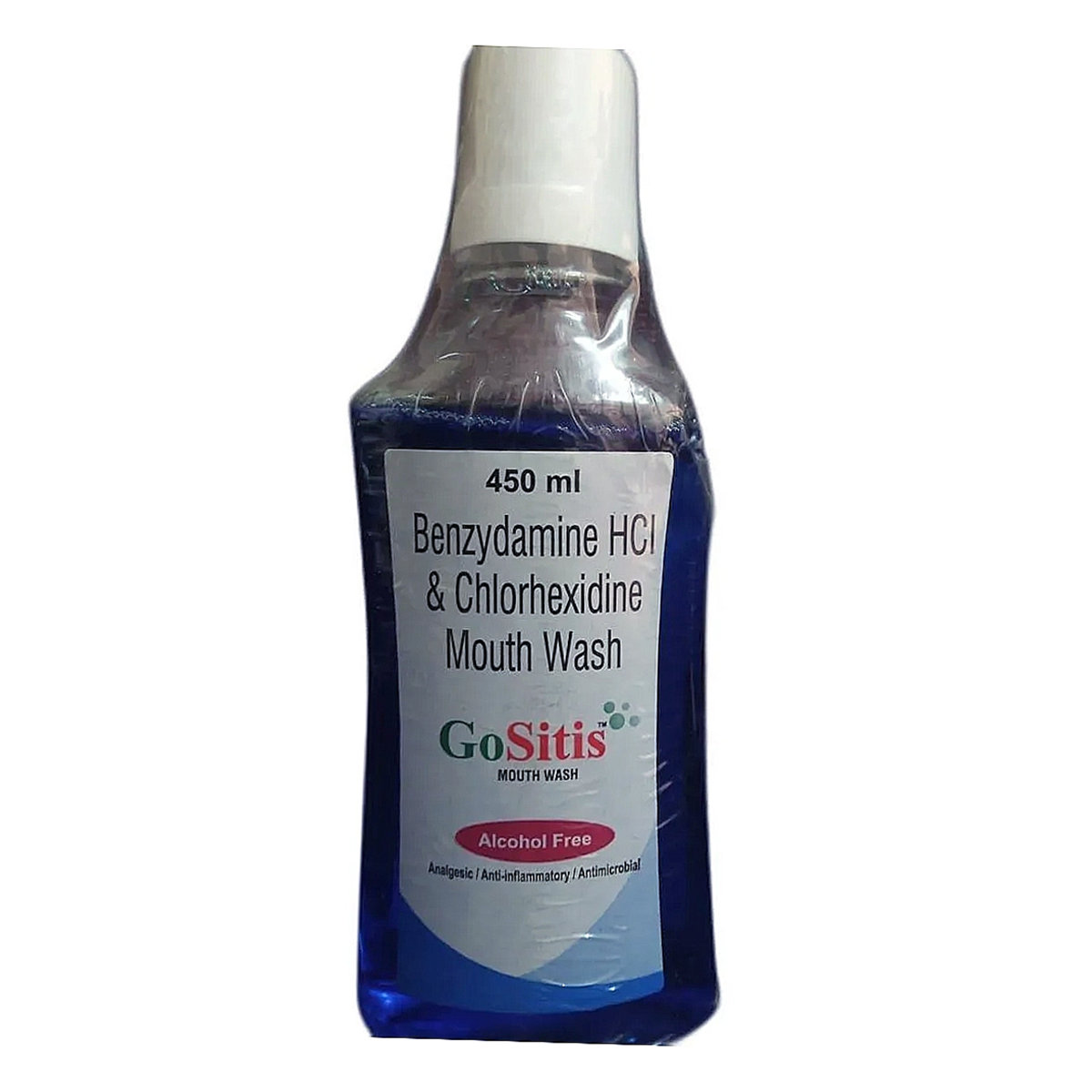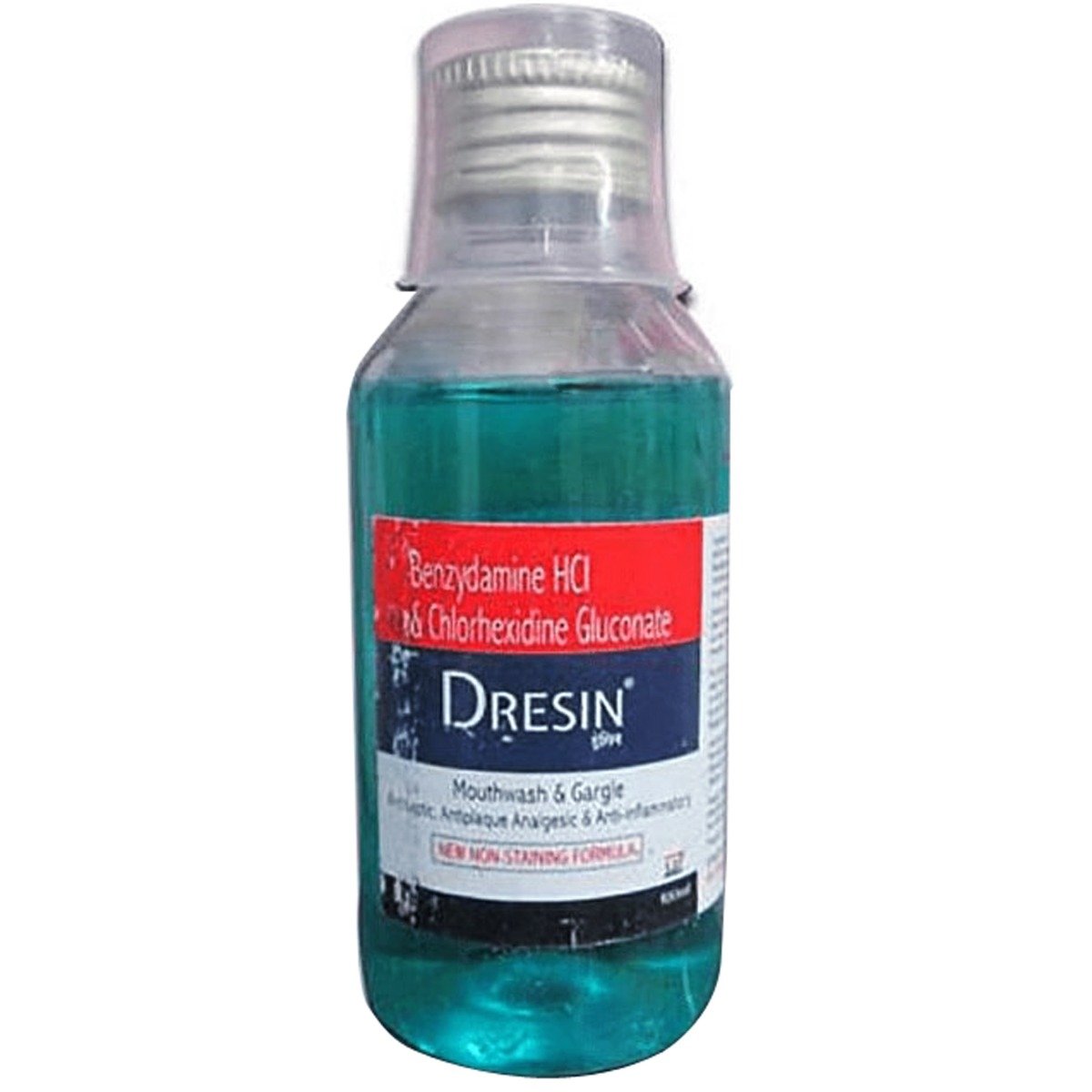Benzydamine+chlorhexidine
About Benzydamine+chlorhexidine
Benzydamine+chlorhexidine belongs to the class of medication called oral, topical antimicrobial agents primarily used to treat gum diseases like gum inflammation (gingivitis) and prevent dental plaque. Gingivitis is gum inflammation caused by bacteria, which can lead to periodontitis if left untreated. This can cause the gum to separate from the teeth leading to the loss of teeth.
Benzydamine+chlorhexidine contains Benzydamine (anti-inflammatory) and Chlorhexidine (an antiseptic). Benzydamine is a non-steroidal anti-inflammatory drug (NSAID) that blocks the release of certain chemical messengers that cause pain and inflammation (redness and swelling). Chlorhexidine is an antiseptic. It works by binding to the surface of teeth, inner cheeks, and gums. This kills the infectious microorganisms that cause gum disease, tartar, and other mouth infections. As a result, it helps in maintaining good oral and dental hygiene.
Benzydamine+chlorhexidine comes in mouthwash and spray form for application inside the mouth. Your doctor will decide the dose depending on the type of infection/condition. Contact of Benzydamine+chlorhexidine with eye should be avoided. If you accidentally touch your eyes while using Benzydamine+chlorhexidine, please wash them immediately. The most common side effect of Benzydamine+chlorhexidine is a bitter taste, irritation, dryness, and teeth staining. Sometimes it can lead to allergic reactions. If these effects appear and are bothersome, call your doctor.
Let your doctor know if you are pregnant or planning to get pregnant or breastfeeding before using Benzydamine+chlorhexidine. Avoid eating, drinking, or brushing your teeth after using this medication. In rare cases, Benzydamine+chlorhexidine can lead to severe allergic reactions, blood pressure drops, and even unconsciousness. Benzydamine+chlorhexidine is known to cause staining, it can be reduced by reducing the consumption of tea, coffee, and red wine. Maintain good oral hygiene and brush at least 2 times daily to avoid any oral infection and its spread.
Uses of Benzydamine+chlorhexidine
Medicinal Benefits
Benzydamine+chlorhexidine is a combination medication containing Benzydamine (anti-inflammatory) and Chlorhexidine (an antiseptic). Benzydamine+chlorhexidine is primarily used in treating mouth infections. When microorganisms overgrow the otherwise normally present mouth, it can lead to unpleasant symptoms like mouth sores or ulcers, swollen gums, unpleasant taste changes, and suggestive mouth infections. Benzydamine is a non-steroidal anti-inflammatory drug (NSAID) that blocks the release of certain chemical messengers that cause pain and inflammation (redness and swelling). Chlorhexidine helps by binding to the inner surface of teeth and cheeks. This kills the infectious microorganisms that cause gum disease, tartar, and other mouth infections. As a result, good oral hygiene is maintained, and it is easier to go out and perform daily activities.
Directions for Use
Storage
Side Effects of Benzydamine+chlorhexidine
- Bitter taste
- Irritation
- Dryness
- Staining of teeth
- Decreased taste sensation
Drug Warnings
Do not take Benzydamine+chlorhexidine if you are allergic to Benzydamine+chlorhexidine, its ingredients. Inform your doctor if you are pregnant or breastfeeding. Do not give this medication to children without a doctor's advice. In rare cases, chlorhexidine in Benzydamine+chlorhexidine may cause severe irritation or chemical burns in young children. Also, inform your doctor of all other medicines you are taking before using Benzydamine+chlorhexidine. If you notice any skin rash or experience asthma, it could be due to an allergic reaction. Be careful not to splash the mouthwash in your eyes. If you get it in your eyes accidentally, wash them immediately with cold water.
Drug Interactions
Drug-Drug Interaction: No interaction found.
Drug-Food Interaction: No interaction found.
Drug-Disease Interaction: No interaction found.
Drug-Drug Interactions Checker List:
Safety Advice

Alcohol
cautionNo interactions were found/established.

Pregnancy
cautionPlease consult your doctor if you are pregnant or plan to become pregnant before using Benzydamine+chlorhexidine.

Breast Feeding
cautionPlease consult your doctor if you are breastfeeding before using Benzydamine+chlorhexidine.

Driving
cautionBenzydamine+chlorhexidine is not known to impair vision or cause blurry vision.

Liver
cautionIf you have liver problems, consult your doctor before using Benzydamine+chlorhexidine.

Kidney
cautionIf you have kidney problems, consult your doctor before using Benzydamine+chlorhexidine.

Children
cautionChildren below the age of 12 years should not use Benzydamine+chlorhexidine. In children above 12, Benzydamine+chlorhexidine should be used only if advised by a doctor.
Habit Forming
Diet & Lifestyle Advise
- Staining can be reduced by reducing tea, coffee, and red wine and brushing with toothpaste daily before using the gel.
- Maintain good oral hygiene to avoid infection from spreading.
- Regular dental checkups can help in preventing the progression of the infection.
Special Advise
- Avoid drinking beverages like tea, or coffee, especially up to 1 hour after the use of Benzydamine+chlorhexidine.
- Children under 12 years of age should not use Benzydamine+chlorhexidine until and unless advised by a dentist or doctor.
Patients Concern
Disease/Condition Glossary
Gingivitis: It is a periodontal or gum disease characterised by swollen and bleeding gums caused by a variety of bacteria. If untreated, this can lead to periodontitis and, eventually, tooth loss. Its signs and symptoms include gum bleeding, swollen gums, a loose tooth, and occasionally a foul oral odour. Bacteria that cause dental and gum problems include Fusobacterium, Lachnospiraceae, Lautropia, Prevotella oulorum, and Rothia dentocariosa.
FAQs
Use Benzydamine+chlorhexidine for the full advised length of time. Your symptoms may improve before your gingivitis is completely cleared. Benzydamine+chlorhexidine will not treat a viral or fungal infection such as cold sores, canker sores, or oral thrush (yeast infection).
Follow all directions given on the label. Do not use chlorhexidine gluconate in larger or smaller amounts or for longer than recommended. Rinse your mouth with Benzydamine+chlorhexidine twice daily after brushing your teeth. Do not rinse your mouth with water or other mouthwashes after using Benzydamine+chlorhexidine.
Use the missed dose as soon as you remember, but brush your teeth first. Skip the missed dose if it is almost time for your next scheduled dose. Do not use the extra Benzydamine+chlorhexidine to make up for the missed dose.
Avoid eating, drinking, or brushing your teeth after using this medication. Do not use any other mouthwash unless your doctor has told you to.
Yes, Benzydamine+chlorhexidine may cause teeth staining if taken for a prolonged time. So, taking it for a short duration is advised as it is a short-term medication.




